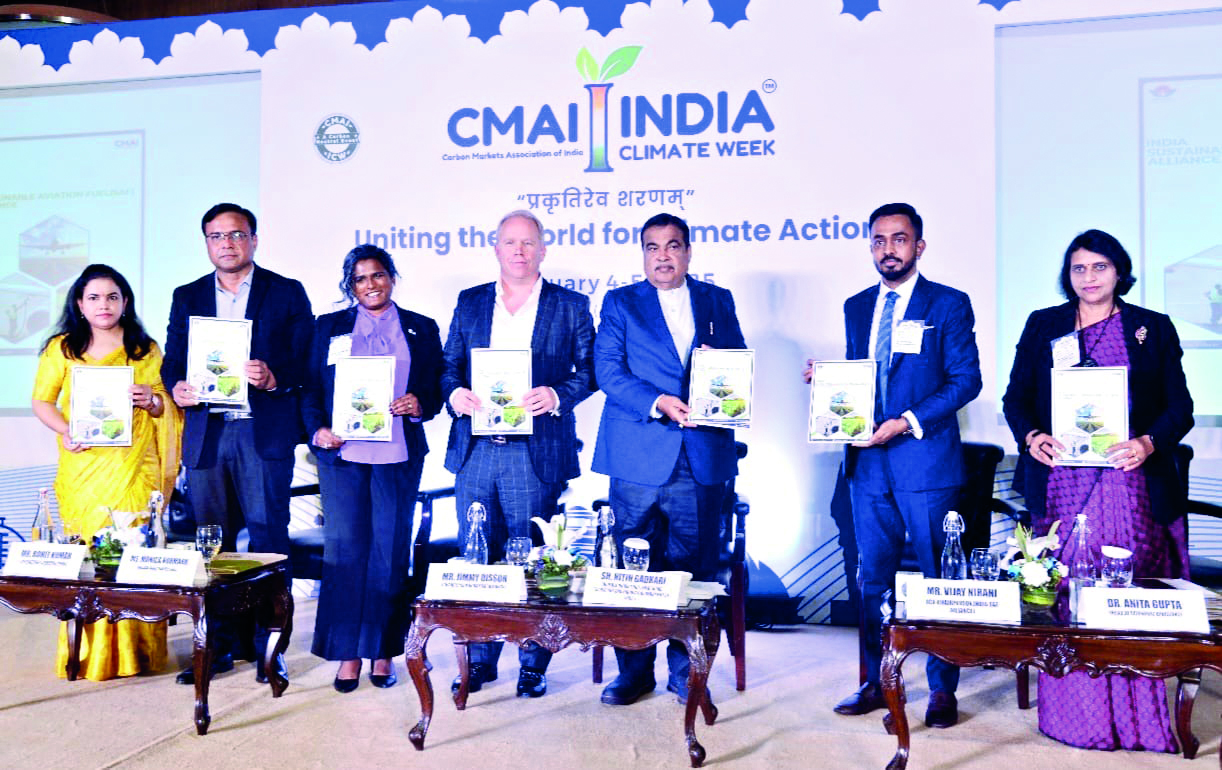India SAF Alliance launched to propel sustainable aviation, energy goals

New Delhi: In a major step towards decarbonising the aviation sector and positioning India as a global leader in sustainable energy, the India SAF Alliance was officially launched on Wednesday during the India Climate Week 2025.
The event witnessed the presence of Union Minister for Road Transport and Highways, Nitin Gadkari, alongside prominent stakeholders from the biofuels and aviation sectors.
Addressing the gathering, Gadkari underscored the government’s commitment to transforming India from an energy importer to an energy exporter. He highlighted the importance of futuristic development strategies and transformative policies for integrating Sustainable Aviation Fuel (SAF) into the country’s aviation ecosystem.
Sharing insights on biomass, biofuels, corn methanol, and waste utilization, the minister further emphasised the critical role of such initiatives in building a resilient and sustainable energy framework.
The India SAF Alliance, driven by industry leaders and policymakers, aims to create a robust ecosystem for the production, adoption, and innovation of SAF in India. The initiative aligns with the country’s ambition to achieve net-zero emissions by 2070 and reduce the aviation sector’s carbon footprint.
Vijay Nirani, Co-Chairperson of the Alliance and Founder of Trualt Bioenergy, laid out ambitious targets, including a 1 percent SAF blend by 2027, increasing to 5 percent by 2030, as part of a blueprint for sustainable aviation.
India aims to achieve a 10 percent SAF blend with conventional jet fuel by 2030, a move aligned with its broader carbon reduction and renewable energy goals. As the third-largest aviation market globally, the country’s rapid growth necessitates sustainable solutions like SAF, with the global market for the fuel projected to expand significantly by the end of the decade.
The Alliance, an initiative of the Carbon Markets Association of India (CMAI), is dedicated to fostering SAF development and policy advocacy. It aims to deliver high-quality SAF solutions while contributing to Scope 3 emission reductions, thereby incentivizing stakeholders to accelerate the transition to a net-zero future and promoting grassroots-level economic development.
India Climate Week 2025 brought together government officials, industry leaders, policymakers, climate experts, academics and civil society representatives.
The event emphasised inclusive engagement for decarbonisation and resilience, inspiring scalable strategies to combat climate change.



